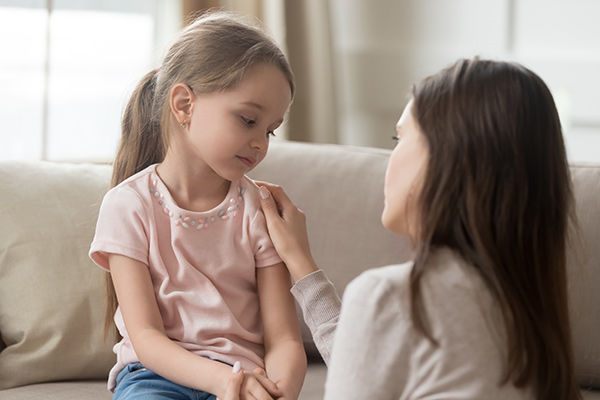Forgiveness
The Magic of an Apology
Apologizing to your child can have a lasting effect.
Posted October 10, 2019 Reviewed by Hara Estroff Marano

Parent-child issues? Try the magic pill of an apology.
As an adult, you have most likely experienced the power of an apology—either on the giving or receiving end. A simple, sincere apology can change the storyline, the perspective of a discussion, event or topic. But can apologizing to your child have the same magic effect?
Apologizing helps calm the waters, leads to productive discussions, and the children will learn from your example—they will “internalize” your style.
Apologizing:
- Can enhance self-reflection, taking responsibility, and interpersonal skills.
- Can decrease paranoia, the victim stance, and the tendency to blame (“externalize”) (Hoffman et al, 2016).
- Can help the children themselves to apologize when appropriate.
What does the apology sound like?
I am really sorry, sweetheart—I was tired and frustrated and got angry, and I should not have shouted at you or used those words. I apologize, and I will try to understand what happened and to improve myself.
Or:
I am terribly sorry about what happened...
do you think we could maybe talk together about what happened so I could learn something and not have it happen again?
And what underlies the capacity to apologize and enhance the child’s self-reflection? Two processes are especially important:
- Empathy—empathy involves a genuine understanding of what the other person is feeling, without evaluating or judging those feelings.
- And what are the feelings? As previously discussed: interest (curiosity, enjoyment, surprise, distress, anger, fear, shame, disgust, and dissmell (reaction to toxic odors).
In all of this, the parent-child interaction is important—anything that can be done to enhance curiosity and self-reflection in everyone will be well worth the effort.
All this raises an interesting question: Why is it often so difficult to apologize? One might consider at least three reasons.
- First, frequently we ourselves have not been apologized to---especially when we were younger. How many times can you recall a parent or caregiver or whomever apologizing to you when you were little? Thus, we often have not learned how to apologize and the benefits of the apologizing process.
- Second, many times an apology carries with it a diminishment in self-esteem---"I am wrong"; "I made a mistake"; "I did not know that". The feeling of shame may be connected. If one's childhood was marked by criticism, acknowledging an error in the present may elicit fear, anger, and shame.
- Third, the problems associated with apologizing may also be related to the difficulty of learning in general. Learning is often not easy---the taking in of new information may require some degree of internal disorganization and discomfort, as Bob Galatzer-Levy describes in discussing chaos theory (2004). On the positive side, the apologizing process offers an opportunity to learn, which is one more reason to enhance the affect of interest (curiosity) rather than inhibit it.
We might conclude with a short vignette.
On a dark night during the Civil War, President Lincoln finished checking the news from the battlefront and was making his way down the poorly-lit staircase. Suddenly, a Union officer came running up the staircase and slammed into the President. "Oh, Sir, 10,000 pardons!" said the flustered officer. "Soldier, one pardon is more than enough," replied Lincoln, "And I just wish the rest of the Union Army could charge like that!"
References
Galatzer-Levy RM (2004). Chaotic possibilities: Toward a new model of development. Int J Psychoanal 85: 419-441.
Hoffman L, Rice T, Prout T (2016). Manual of Regulation-Focused Psychotherapy for Children (RFP-C) with Externalizing Behaviors: A Psychodynamic Approach. New York: Routledge.


